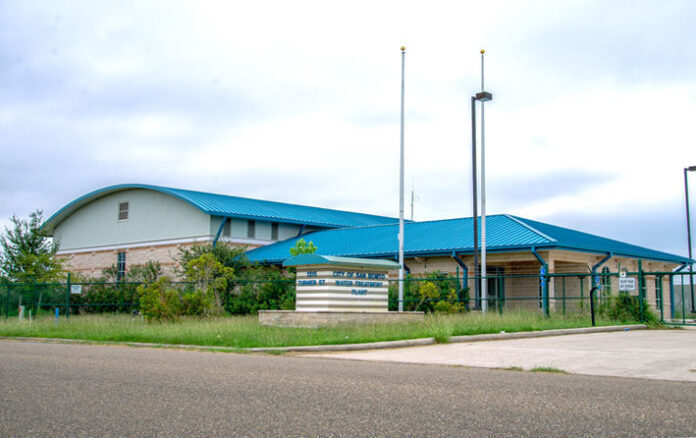SAN BENITO — Officials have scrapped a completion date for the project to re-open the $17 million water plant shut down about five years ago.
Earlier this year, City Manager Manuel De La Rosa was planning to re-open the plant between Aug. 24 and Dec. 21.
Now, he’s scratched that timetable.
“At this time, we are not projecting a completion date,” De La Rosa stated yesterday. “Our only priority is to see that the plant will meet quality standards that the city originally intended.”
At the site off Turner Road, technicians are working to revive the water plant that’s remained inoperative for five years.
“We are going through a rigorous sequence, much like what is undertaken in establishing a new water treatment plant,” De La Rosa stated.
About five years after it opened, a previous commission shut down the water plant following “malfunctions” in mid 2014.
Since then, officials have pumped more than $1 million into the city’s 92-year-old plant to turn it into the main water source.
“It’s very important we get this water plant up and going,” Commissioner Rick Guerra said. “There are so many millions of dollars sitting there not doing its work.”
For more than a year, officials have tapped into a lawsuit settlement to help fund the plant’s restoration.
In December 2017, the city won the settlement that included $1.87 million in cash and $3.1 million worth of services from Evoqua Water Technologies.
As part of the settlement, Evoqua, formerly Siemens, agreed to perform $3.1 million in services, including conducting a pilot study and installing equipment needed to operate the plant.
In February, the Texas Commission on Environmental Quality approved the project’s pilot study, a small-scale test of processes to be used in the plant’s operation.
“We are being proactive in following a scripted process as outlined in the settlement agreement where Siemens/Evoqua must bring the plant back up to its originally-intended level of water production,” De La Rosa stated. “We will not rush that process. We will ensure that the work performed meets the highest level of standards for our citizens.”
As part of the settlement, Evoqua agreed to provide technicians to help make the plant operational.
“There are many items that must be verified in this process to ensure the production of clean, safe water production,” De La Rosa stated. “This procedure includes plant operators conducting assessments to see if all processes are working as they should. If not, they must begin again to ensure that the plant, once opened, will meet all compliance measures as required by TCEQ.”
The shutdown
In 2014, “malfunctions” led a previous city commission to shut down the plant.
In previous press releases, officials have stated the plant never produced its capacity of 6 million gallons a day amid concerns its microfiltration system was not properly operating.
‘Model’ project
In 2009, the city built the $17.9 million water plant whose use of solar panels made it a “model” project along the Texas-Mexico border, according to the Texas General Land Office.
The plant off Turner Road was built to treat as much as 6 million gallons of water a day, 2.5 million gallons more than the city’s old plant, officials said at the time.
At its grand opening ceremony in October 2009, Jose Garces, the North American Development Bank’s managing director, called the plant a model for projects along the U.S.-Mexico border at the ceremony.
“This project is one of the most important projects, not only in the Valley but on the border,” Arkelao Lopez, projects director for the Border Environmental Cooperation Commission, said at the ceremony.
Meanwhile, to help pay off the plant’s debt, a previous commission boosted water and sewer rates, now some of the highest in the Valley.
Old water plant
For decades, the city had planned to phase out and shut down its old Stenger Street plant built in 1927.
But since the new water plant shut down, the city has spent more than $1 million to upgrade the 91-year-old plant.
The city has continued to upgrade the old plant after it ran into big problems.
In September 2016 and January 2018, the old plant temporarily shut down, cutting water service across town.
As part of an agreement, Harlingen temporarily provided water to the city’s homes and businesses.




